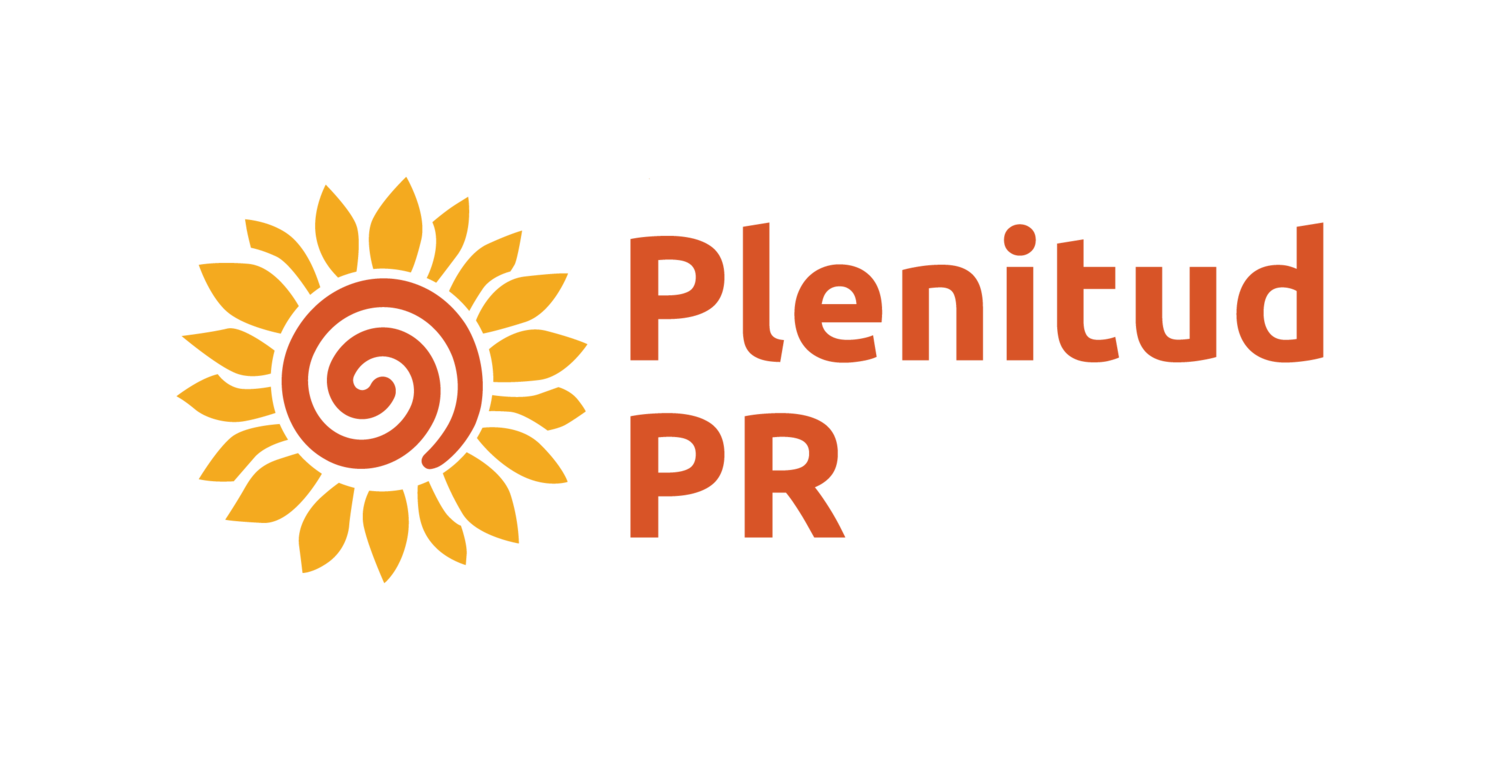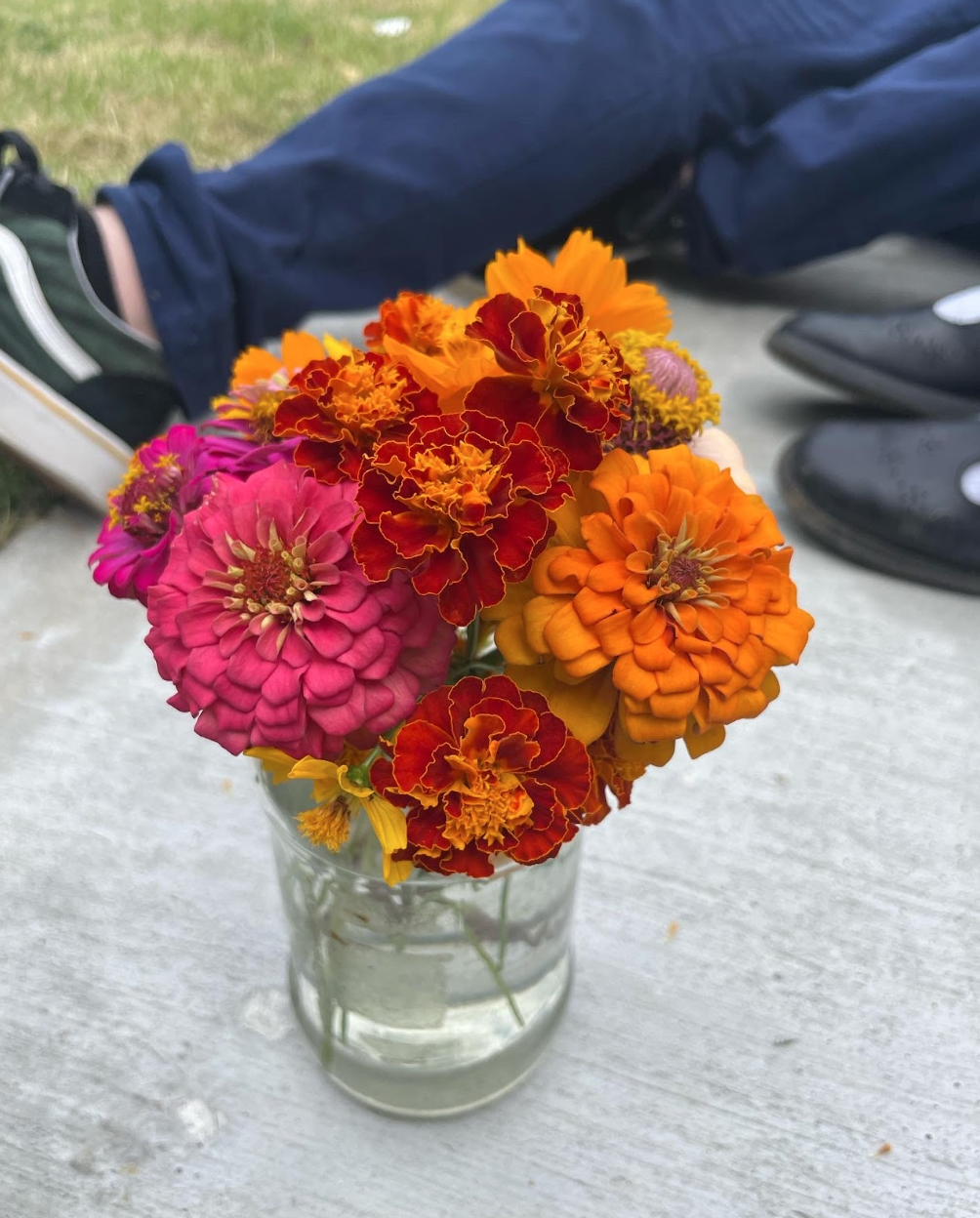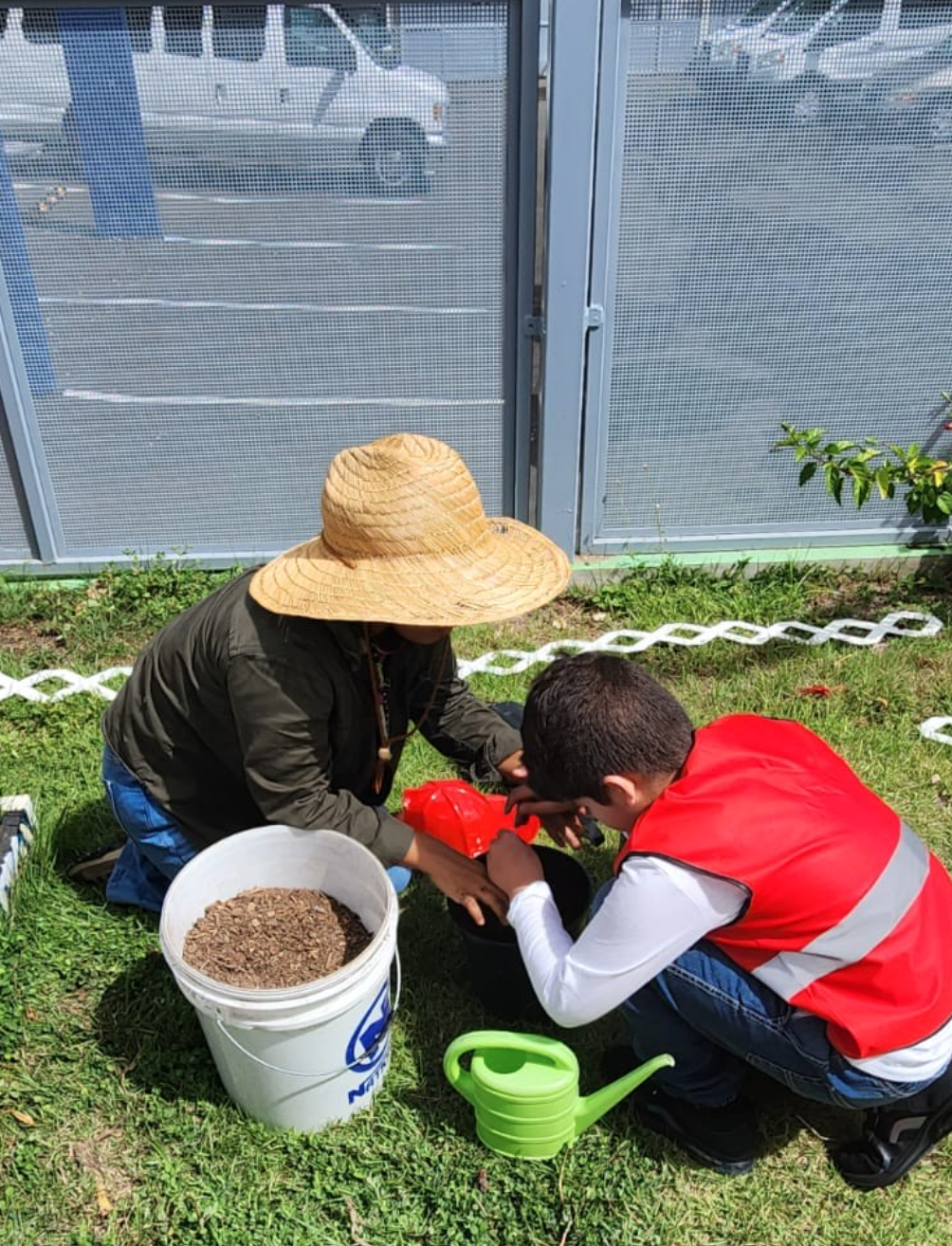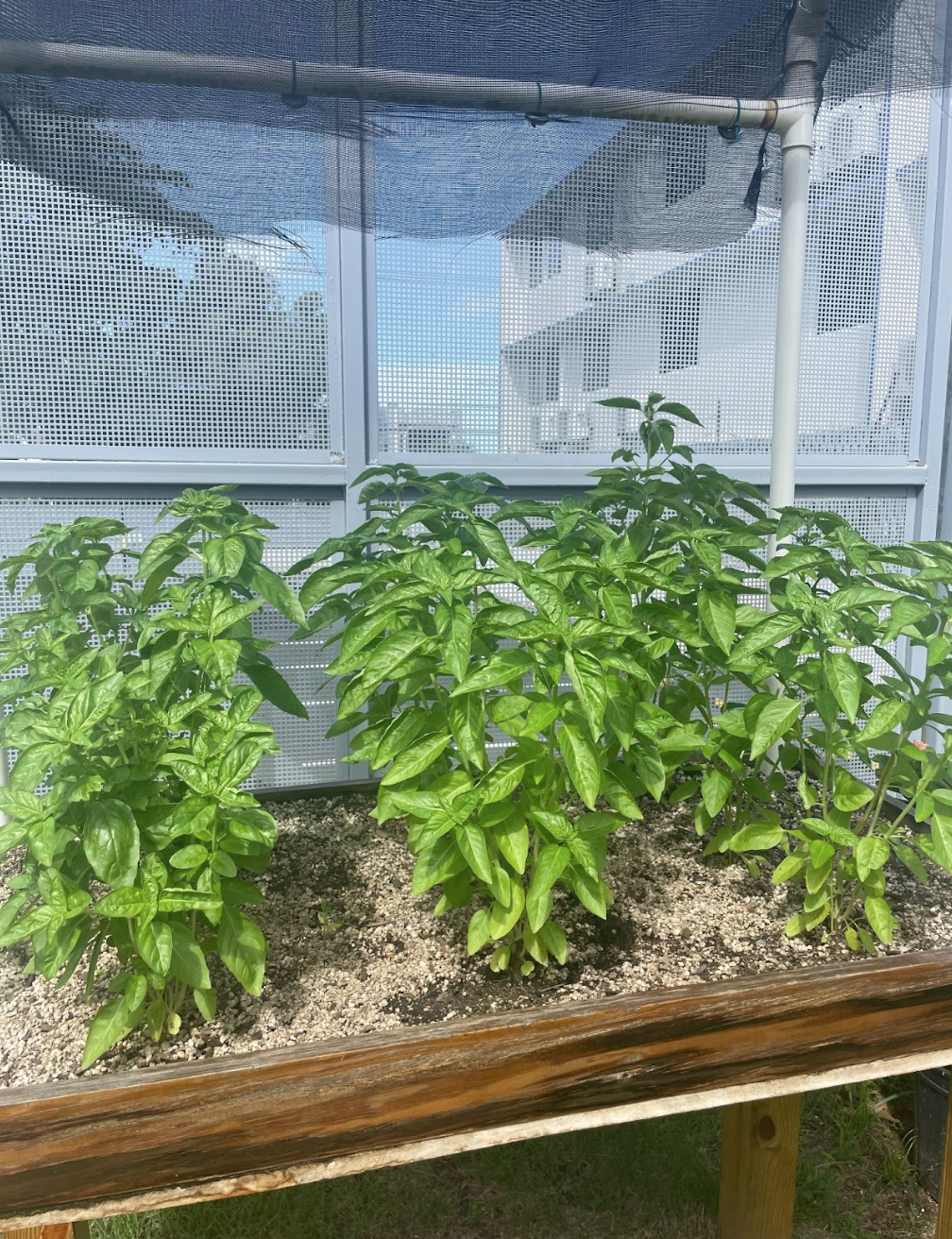Celebrating Unity in Diversity in the Garden
Students in their school garden at Escuela Dr. Silverio Medina Gaud (Consumo), Las Marías.
Agroecology proposes a relationship with agriculture focused on sustainable food production, community ties and respect for biodiversity. It exemplifies the importance of respecting the diversity of beings in our environment, reminding us that no matter how big or small an organism is - they have a function. Agroecology encourages us to put the word ‘harmony’ into practice, so we can dream of a society that is united in solidarity and inclusivity.
Agroecological gardens look for ways to create interactions that strengthen the entire ecosystem, such as using companion crop planting as a technique where different crops are planted together because of their abilities to help one another grow stronger and healthier. Observing that biodiversity is key in creating a resilient, prosperous environment for all of the plants and living organisms in the ecosystem, I questioned: is it possible to do the same with human relationships? I asked myself this in 2018, when I started as a horticulture teacher at a school for students in the special education program. An idea came to my mind that the students could gain confidence and celebrate their individual, unique offerings to the class space and relationships through seeing an ecosystem do the same. But, how do I make each of these children fall in love with agriculture if I can not show them what agriculture is and give them hands-on experiences? I quickly contacted Rebekah, the Agriculture Programs Director at Plenitud PR, who provided me with encouragement, ideas to get started, and hinted that there would soon be an agroecologial manual for teachers like me.
Example of drawings from ¡Siembra Boricua! that show the different families of plants.
Getting started in the garden was the hardest part. Studying the space, getting to know the school community and linking my students' interests with the world of plants was and continues to be a great challenge. I bought the manual, ¡Siembra Boricua! Manual de agricultura en armonía con la naturaleza (Translation: Manual for Agriculture in Harmony with the Natural Environment), as soon as I knew it was for sale and it has been such a useful tool for preparing my classes. In particular, the list of resources for purchasing materials and learning from other projects has been of great help! The colorful images and easy-to-understand text serve as motivation for some of my students. Others really enjoy flipping through the pages and seeing that the people in the book are doing something similar to what they do in school.
Left to right: Variety of flowers that help attract pollinators to their school garden; Ilsia and a student working with soil; healthy basil growing in the school’s garden.
Every time I use the manual, I find something new and reflect on what I have already read. I am reminded of the importance of working in community and how significant the experience of growing food is for children. It motivates me to continue working in an agroecological garden and promote the biodiversity of plants within it, as it is the best way to bring my students closer to agriculture while celebrating the diversity in them.
Students working together to carry soil in their school garden.
Let's have agroecological gardens in each of our schools!
Places where children can coexist with the nature that surrounds them while practicing empathy towards their peers. Safe spaces where they can grow healthy food, relax and relieve mental fatigue. Let's complement the teaching-learning process that occurs in a classroom and instill values focused on respect and love for nature. Keeping in mind that as we teach children to see the similarities in their differences, it is possible to aspire to have a more harmonious, accepting society now and in the future.
Learn more about agroecology and how to start your own home (or classroom!) garden in ¡Siembra Boricua! You can purchase your own copy through our website.








